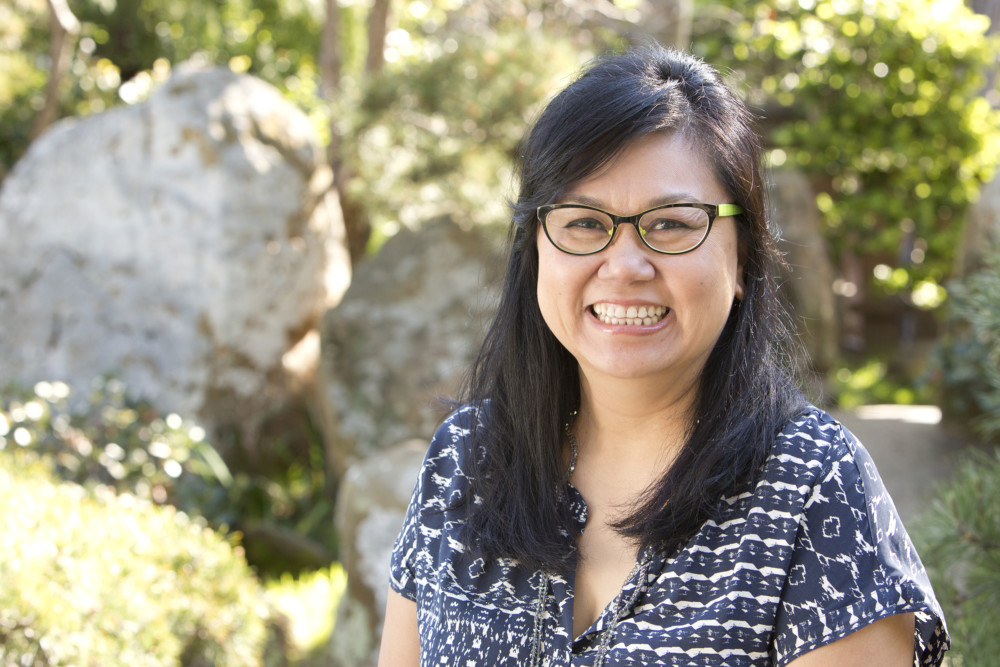By Tracey Lien
Los Angeles Times
WWR Article Summary (tl;dr) Profile of Clif Bar & Co.’s Thao Pham. As the vice president of community, Pham organizes the company-wide local volunteering program and monitors the community to identify ways Clif Bar can be a positive force.
ALAMEDA, Calif.
The gig: Thao Pham, 44, is the vice president of community at Clif Bar & Co. and the executive director of the Clif Bar Family Foundation. Her team of eight people works with nonprofits, organizes volunteers and ensures that the Emeryville, Calif., food company gives back to the communities from which it draws.
Vietnamese roots: When Pham was 4 years old, her family fled Vietnam. It was 1975, only days before the fall of Saigon. As they headed for the coast, her parents and five siblings dressed in beachwear so as not to rouse suspicions. They boarded a Vietnamese naval ship, which took them to the Philippines where they transferred to a U.S. Navy ship bound for the U.S. “It was a close call,” Pham said of their escape. “We were very lucky.”
Loose Creek: The family resettled in Loose Creek, Mo., a farming town of 350 families where Pham said she got her first taste of the meaning of community. The Pham family didn’t speak English and arrived in the U.S. with only each other. “Everyone in Loose Creek came together to help us,” she said. “They taught us English, they found us a place to live, they made sure we had enough food, they found a job for my dad in a garage. To me, that was the meaning of community.”
California-bound: Pham’s family moved to the Bay Area in 1977 to be closer to the Vietnamese community that had formed in Northern California. Her father started a food truck business in Alameda, just south of Oakland, where she lives today. Pham studied political science at the University of California at Berkeley. As a student at Cal, she worked at the student union and at a real estate law firm. “There, I was exposed to what it means to be good with time management,” she said. Despite pressure from her parents to become a doctor or a lawyer, neither profession felt right for her. After graduation, she spent a few years as a legal analyst for Levi Strauss, but was less interested in the legal side of things and more interested in helping people.
Clif Bar: Pham remembers the day she joined the human resources team at Clif Bar & Co., Oct. 9, 2000, because the company was deciding whether to sell or to stay private. It ultimately stayed private, turning down a multimillion-dollar acquisition. “It gave me insight into how things are not just business as usual here,” Pham said. “They wanted to keep it private, because they knew a business could do what a philanthropist could do.”
Community leader: After working in HR at Clif Bar & Co. for six years, Pham was tapped to lead its community efforts in 2006. “I felt it was my calling,” she said. As the vice president of community, she partners her firm with communities to offer financial support for infrastructure and organizes the company-wide local volunteering program. Her team monitors the community and identifies ways Clif Bar can be a positive force. She draws on her experiences in Loose Creek to inform her approach. “It’s through the simple act of lending a hand,” she said. “That experience of connecting with people and supporting people you don’t even know, it moves you. As a child, I was a translator for my parents. And now I’m a translator for the community.”
Food future: Pham also runs the nonprofit Clif Bar Family Foundation, which is funded by the food company. She directs financial support for small to mid-sized nonprofits working to strengthen the food system. The foundation has made investments in organic seeds and farming, and Pham thinks of it as succession planning for the planet’s food future. “We need to leave them something much better than what we have now,” she said.
Seed Matters: Under Pham’s directorship, the Clif Bar Family Foundation invested $1 million in Seed Matters, a nonprofit that promotes farmers roles and rights as seed stewards, conserves crop diversity and helps fund public seed research. According to Pham, such investments don’t necessarily affect Clif Bar’s day-to-day operations, but they’re an example of how the company looks to give back to and improve the communities that are in some way connected with its operations.
Advice: For companies that want to be more involved in the community, Pham suggests creating a community service program and getting employees involved. “It’s more than just writing a check,” she said. “Get your employees engaged and let them choose the organizations they want to support.”














































































































































































































































































































































































